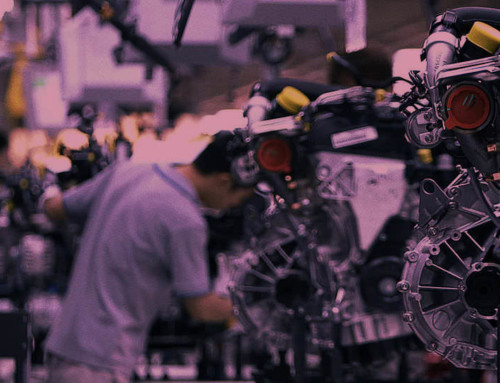Most tax reform is complicated to both understand, and to figure out what its real effect would be. Here I advocate two simple reforms that would not necessarily solve any of the major challenges of tax reform, but that would help with its biggest challenges.
One is to dramatically increase taxes on real estate—on both private housing and business premises.
I suggested this reform when Afghan tax officials told me that all forms of taxes are impossible to collect from their super-rich. Their mobile funds are shunted off to Dubai and that is also where they do their luxury spending. My suggestion was that all their super-rich have very extravagant mansions rooted in Afghanistan. So it would be worthwhile to concentrate on taxing them progressively—with million dollar properties having ten or twenty times the tax rate of $10,000 properties, and with the majority of properties of the poor attracting no tax.
Another lumpy rooted asset of the very rich is their expensive cars. So steeply increase not only sales tax or GST on cars that progressively increase according to the value of the car, but also set steep and progressive annual registration fees on this rooted asset.
These two simple little reforms would help with the following challenges:
As the assets of the rich become more internationally mobile, how do we tax more progressively those assets that are more rooted?
With companies like Google and Starbucks who manage to transfer almost all their profits offshore, at least we can get a little out of them by extremely steep taxes on their considerable corporate premises. Of course, they can rent them, but landlords will then just pass these taxes on to them.
The problem with property taxes in many countries is that they are ridiculously low because they are set to meet the modest income needs of local governments and not to pay for hospitals, schools, defence and social security. Property taxes need to be set at a high and progressive enough rate to make a really significant contribution to national spending priorities.
How can tax contribute to reducing global warming?
Mansions not only use a lot of building materials and clear a lot of trees on the site, they also create cavernous sites of conspicuous consumption that beckon to be packed with consumer durables that further deepen our carbon footprint. Steep taxes on mansions will encourage the rich to have smaller dwellings and perhaps to own only one or two of them full of their environmentally destructive possessions, instead or four or five. If we drive the rich into rental accommodation for their holidays through severe taxes, instead of collecting more holiday mansions, we drive them into a more efficient use of housing stock that can be utilised more of the time.
Australians have environmentally disastrous large houses compared to other rich countries because the family home is exempted from capital gains tax. Lifting that exemption would also be good economic policy because it would shift investment from building grander houses to investments in productive assets that create more jobs.
Likewise with cars, steep taxes might cause wealthy families to settle for one car. If it drives them to use taxis or Uber more, that is a more efficient, and therefore less environmentally destructive, use of the motor vehicle stock. This leads to a rather new kind of challenge for the tax system.
How do we capture tax revenue from the mobility of the peer-to-peer sharing economy?
There is a reason why Uber and Airbnb are the mega players of the sharing economy. The most expensive assets—real estate and cars—are those that make most economic sense to utilize more fully and efficiently by sharing them. People don’t need to, or think to, share their cheapest assets; people do not share their underwear in a sharing economy!
On the downside, hefty taxes on nice cars and elegant houses will increase the start-up costs of suppliers joining Uber or Airbnb. On the upside, these steep taxes will move consumers from ownership of a second car or a house at the beach to sharing those of Uber and Airbnb suppliers. So Uber drivers would quickly find themselves in a stronger market for collecting their heavy car taxes back from consumers through higher Uber prices.
How can we keep our tax system simple and auditable?
The steep new progressive taxes I propose do not require expensive new accounting structures. We already pay non-trivial taxes on property and cars. But by making these taxes steep we can actually make tax audit more cost-effective. In Afghanistan, tax officials said my proposal would not work because the super-rich operate their villas in the black economy. But if the tax rates on mansions are steep enough, it would be worthwhile for auditors to walk up targeted streets in the most affluent suburbs issuing notices requiring owners to prove (on the spot or within 30 days) that the mansion tax has been paid. Failing that, they will be issued with a notice to vacate the premises within 60 days. They or their landlord would then pay that tax rather than allow that notice to be actioned. Cars are simpler still because we can scan their registration plate or require cars to display a sticker that the police can check to see if this year’s registration has been paid. Actually we could even require buildings to post such a scannable registration plate or sticker on their rooted entrance or letter box so as to increase ease of audit.
No panaceas in tax
Fixing broken tax systems cannot be done with just a dozen critical reforms. It requires many dozens because the terrain of the system is so large and complex. So my two proposals here are very limited suggestions.
The program of work of the Centre for Tax System Integrity at RegNet, which included my 2005 book Markets in Vice, Markets in Virtue tackles some of those dozens of further, more complex, reforms. So does the contemporary work of the Tax and Transfer Policy Institute. And the work of Oxfam and the Tax Justice Network.






Leave A Comment